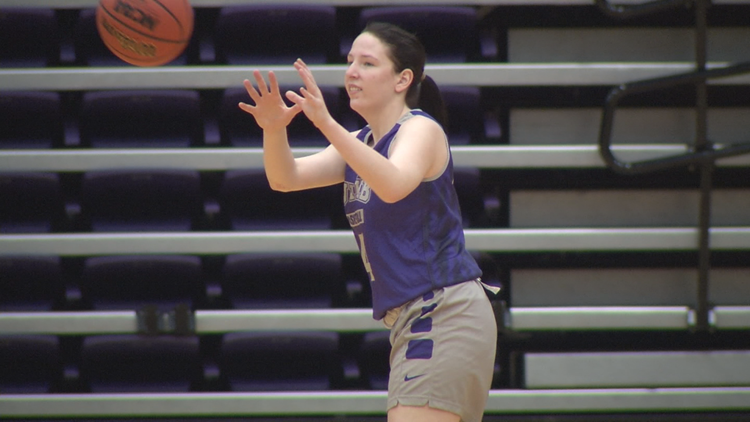BELTON, Texas — For years, athletes at NCAA Division III schools have been on their own for food unless it was a game day.
That all changed Saturday, when the NCAA announced it had passed a change to its longstanding rule, allowing schools to give snacks to athletes following workouts, practices and games, even outside of that sport's season.
In a tweet, the NCAA stated the new rule, "specifies that an institution may provide snacks and permissible nutritional supplements to student-athletes as a benefit incidental to participation in intercollegiate athletics."
"It really picked up momentum over the past couple of years," University of Mary Hardin-Baylor athletic director Randy Mann said. "So, to see this pass, it's really a big piece of legislation that we've been waiting on for a long time."
Mann, in his eighth year as UMHB's AD, said the rule, in effect through the end of the 2019-20 school year, only allows for meals and snacks to be provided on game days or road trips during the season.
With that rule, if the team were at home and not playing, the athletes were left to fend for themselves at DIII schools, in addition to required coursework and athletic obligations.
"Whether it's after a morning workout or morning practice, going to class, I think a lot of times, it's just a benefit of health value," UMHB women's basketball coach Mark Morefield said. "Especially for an athlete, burning so many calories and the endurance that they have."
Morefield is in his fifth season leading the Crusader women's basketball team and spent eight years on Scott Drew's staff at Baylor, when the NCAA first allowed the same benefit for Division I athletes in the early 2000's.
Mann said most of UMHB's student-athletes live off-campus either have a small meal plan or none at all. With that in mind, Morefield said he'd suggest to his players to bring something for after workouts, but that was all he could do.
"All college students are busy with their schoolwork and trying to earn their degrees," Morefield said. "And then athletes have weight and conditioning workouts, practice and games on top of that. This lets us help them, with at least one thing."
Morefield also said in the Spring 2020 semester, while the Crusaders are in the heart of American Southwest Conference play, two of his players have to leave practice early one day each week in order to attend a night class. This season, those players either have to bring something from home or not eat before that class, which could hurt their focus in that class.
He elaborated, pointing out if any student in that situation were tired, which is common, after that night class he or she may sometimes choose to either eat a non-nutritional meal or just not eat at all. The new rule would allow teams to have something available for them in the locker room as they leave.
"To maintain injury prevention," Morefield said. "To maintain their stamina and, first and foremost, to maintain their health as the season progresses and so forth."
Mann said the new rule, which he called a huge win for student-athletes across the country, will require universities to re-work athletic department budgets to allow for nutritional supplements for its athletes. It's unclear how much the financial impact would be.
The new rule will go into effect on Aug. 1, 2020. At UMHB, the first teams to benefit from the new rule will be its men's and women's soccer teams.



